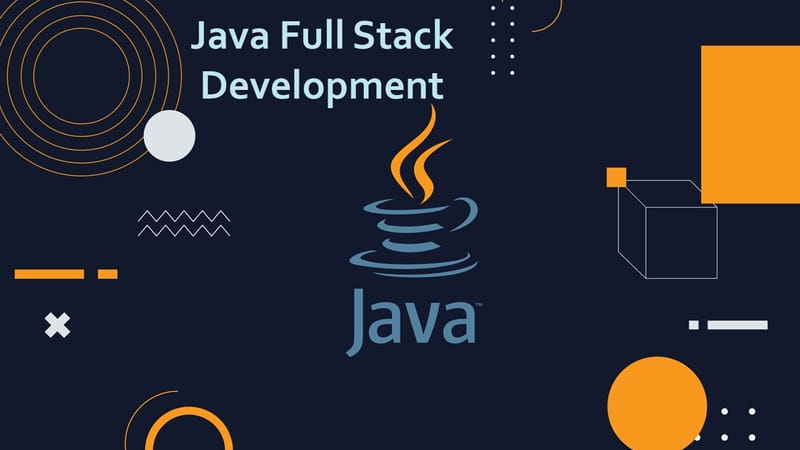
Note: Contact us for batch and joining details
WhatsApp : +91 9989443915
JavaFullStack_Contents_MedhaXL.pdf
Java Full Stack development refers to the process of building web applications that encompass both the frontend and backend components using the Java programming language and related technologies. It typically covers the following topics:
Course Objectives:
After successful completion of this course, students should have a solid foundation in Java programming, Database and FrontEnd tools and be able to develop Java applications independently.
Who can join this course?
Any Fresh Graduates, Students and working professionals who wants to learn Full Stack Java to gain knowledge in Programming and looking for establish career as Java Developer career can take up this course.
Pre-requisites:
Your Passion to Learn a Programming Language and Tools.
What you will learn:
- Introduction to Java: Overview of Java programming language, its history, features, and applications. Understanding Java Development Environment (JDK, JRE, IDE) and setting up Java development environment.
- Java Basics: Basic syntax of Java, including data types, variables, operators, control flow statements (if, switch, loops), and working with arrays.
- Object-Oriented Programming (OOP): Introduction to OOP concepts such as classes, objects, inheritance, polymorphism, encapsulation, and abstraction.
- Java Collections: Basics of Java's built-in collection classes such as ArrayList, LinkedList, HashSet, HashMap, and more for storing and manipulating data.
- Java I/O: Input and output operations in Java, including reading and writing to files, streams, and serialization.
- Exception Handling: Understanding exceptions, handling exceptions using try-catch blocks, throwing and catching custom exceptions.
- Multithreading: Basics of multithreading, creating and managing threads, synchronization, and inter-thread communication.
- Java Database Connectivity (JDBC): Basics of Java Database Connectivity (JDBC) for connecting Java applications to relational databases, executing SQL queries, and performing CRUD (Create, Read, Update, Delete) operations.
Back-End Development: The course will likely cover server-side development using Java. This includes learning about Java frameworks such as Spring (including Spring Boot) or Java Enterprise Edition (Java EE). You may learn about creating RESTful APIs, handling HTTP requests and responses, working with databases (using technologies like JDBC or JPA), and implementing security measures.
Relational Databases: The course may cover database concepts and SQL (Structured Query Language) for interacting with relational databases. You may learn about database design, normalization, writing queries, and performing CRUD (Create, Read, Update, Delete) operations.
Web Development: The course may delve into web development concepts like HTTP, web servers, and deployment. You may learn about handling sessions and cookies, managing authentication and authorization, and working with web services.
Front-End Development: The course may include front-end development topics such as HTML, CSS, JavaScript, and front-end frameworks like Angular, React, or Vue.js. You may learn about building user interfaces, handling events, manipulating the Document Object Model (DOM), and creating responsive web designs.
Version Control: The course may introduce version control systems like Git, teaching you how to track changes, collaborate with others, and manage code repositories.
- Best Practices: Writing efficient and maintainable Java code, debugging and testing techniques, and coding conventions.
Note: Contact us for batch and joining details
WhatsApp : +91 9989443915